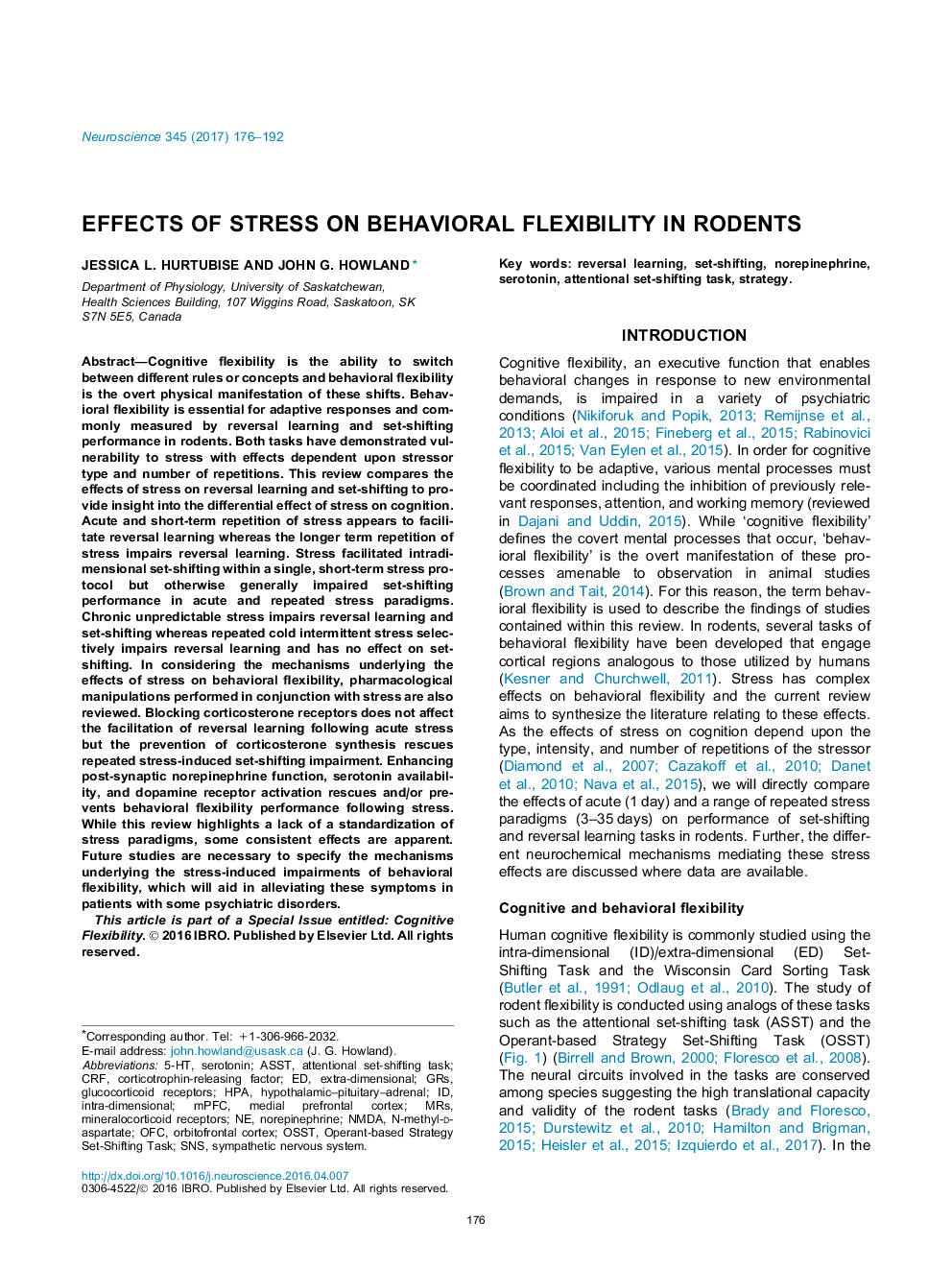| کد مقاله | کد نشریه | سال انتشار | مقاله انگلیسی | نسخه تمام متن |
|---|---|---|---|---|
| 5738002 | 1614731 | 2017 | 17 صفحه PDF | دانلود رایگان |
- Reversal learning improves following <7Â days of stress but is impaired following longer paradigms.
- The extent the stress-induced impairment of set-shifting depends upon the stressor.
- The duration of stress appears particularly important in determining its effects.
- Norepinephrine, dopamine, and serotonin systems mediate stress effects on flexibility.
Cognitive flexibility is the ability to switch between different rules or concepts and behavioral flexibility is the overt physical manifestation of these shifts. Behavioral flexibility is essential for adaptive responses and commonly measured by reversal learning and set-shifting performance in rodents. Both tasks have demonstrated vulnerability to stress with effects dependent upon stressor type and number of repetitions. This review compares the effects of stress on reversal learning and set-shifting to provide insight into the differential effect of stress on cognition. Acute and short-term repetition of stress appears to facilitate reversal learning whereas the longer term repetition of stress impairs reversal learning. Stress facilitated intradimensional set-shifting within a single, short-term stress protocol but otherwise generally impaired set-shifting performance in acute and repeated stress paradigms. Chronic unpredictable stress impairs reversal learning and set-shifting whereas repeated cold intermittent stress selectively impairs reversal learning and has no effect on set-shifting. In considering the mechanisms underlying the effects of stress on behavioral flexibility, pharmacological manipulations performed in conjunction with stress are also reviewed. Blocking corticosterone receptors does not affect the facilitation of reversal learning following acute stress but the prevention of corticosterone synthesis rescues repeated stress-induced set-shifting impairment. Enhancing post-synaptic norepinephrine function, serotonin availability, and dopamine receptor activation rescues and/or prevents behavioral flexibility performance following stress. While this review highlights a lack of a standardization of stress paradigms, some consistent effects are apparent. Future studies are necessary to specify the mechanisms underlying the stress-induced impairments of behavioral flexibility, which will aid in alleviating these symptoms in patients with some psychiatric disorders.
114
Journal: Neuroscience - Volume 345, 14 March 2017, Pages 176-192
